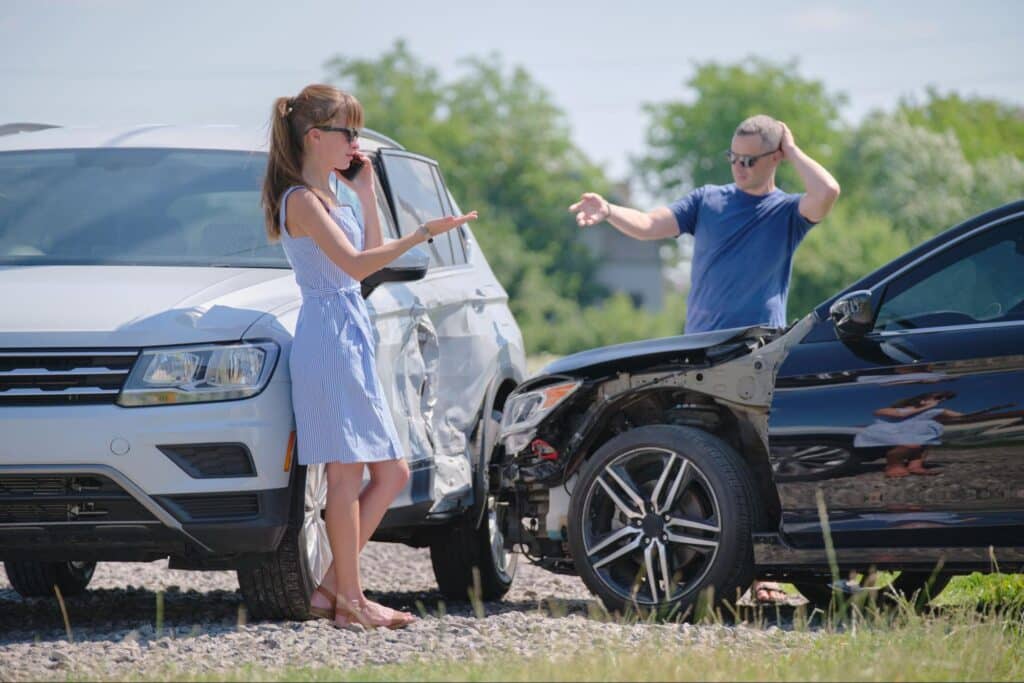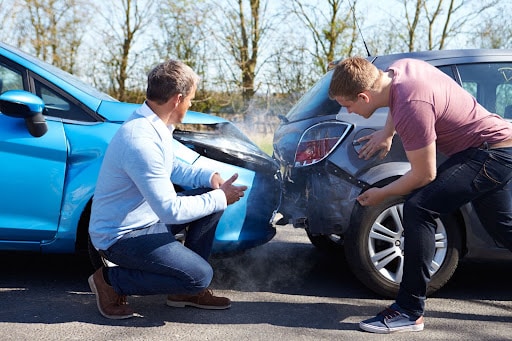Car accidents are stressful and can be overwhelming, particularly if you’re unfamiliar with the insurance claims process. There are approximately 6 million police-reported crashes in the United States each years. Knowing the right steps to take can help you protect yourself legally and financially while ensuring you get the coverage you deserve. This guide outlines what to do immediately after an accident, how to document the incident, and how to manage the insurance claims process efficiently.
What to Do Immediately After a Car Accident
Staying composed after an accident is crucial for everyone’s safety and to protect your rights.
1. Ensure Safety for Yourself and Others
- Check Yourself and Others: First, assess yourself and any passengers for injuries. If someone is unconscious, bleeding heavily, or complains of neck or back pain, do not move them unless they are in immediate danger (e.g., fire risk). Wait for emergency medical services.
- Move to Safety (If Possible): If injuries seem minor and vehicles are operable, carefully move them out of active traffic lanes to the road shoulder, a nearby parking lot, or another safe location. This prevents further collisions and keeps traffic flowing.
- Alert Other Drivers: Immediately turn on your hazard lights. If you have warning triangles or flares and it’s safe to do so, place them behind your vehicle to warn oncoming traffic, especially at night or in poor visibility.
2. Contact Emergency Services if Necessary
- Dial 911: Call emergency services immediately if:
- Anyone is injured (even if it seems minor).
- There is significant damage to vehicles or property.
- The vehicles cannot be moved and are blocking traffic.
- You suspect any driver may be impaired.
- Local laws require reporting the accident to the police.
- Request Police and Medical: Clearly state your location and request both police and an ambulance if injuries are present or suspected.
- Value of a Police Report: Even for seemingly minor accidents, having an official police report is extremely valuable. It provides objective documentation for insurance claims and helps resolve disputes about what happened.
3. Keep Calm and Focused
- Keep Composed: Take deep breaths. Avoid panic, anger, or engaging in arguments with the other driver(s).
- Limit Discussion: Be polite when interacting, but do not admit fault, apologize excessively (“I’m so sorry, it was all my fault”), or speculate about the cause of the accident. Stick only to the basic facts when speaking with the other driver or police. Statements made in the heat of the moment can be misinterpreted or used against you later.
4. Protect the Scene
- Exchange Details: Once safe, calmly exchange the following essential information with all other drivers involved:
- Full Name and Contact Information (Address, Phone Number)
- Driver’s License Number
- Insurance Company and Policy Number
- License Plate Number
- Vehicle Make, Model, and Color
- Identify Witnesses: If there were any witnesses, politely ask for their names and contact information. Independent accounts can be very helpful.
- Take Photos/Videos: Use your smartphone to thoroughly document the scene:
- Damage to all involved vehicles (close-ups and wider shots showing context).
- License plates of all vehicles.
- The overall accident scene from multiple angles, showing vehicle positions.
- Any relevant traffic signs, signals, or road markings.
- Skid marks or debris on the road.
- Current weather and road conditions (e.g., wet pavement, ice, construction zones, poor visibility).
- Note Details: Write down the exact location, date, time, and your recollection of how the accident occurred as soon as possible while it’s fresh in your mind.
Documenting the Accident for Insurance Claims
Accurate and thorough documentation is your best tool for supporting your insurance claim and protecting yourself if disputes arise later. Memory fades quickly, so record details as soon as possible.
Importance of Accurate Record-Keeping
Write down everything you remember about the accident sequence, road conditions, weather, traffic signals, and any statements made by drivers or witnesses while the details are fresh. An organized record strengthens your claim, helps prevent misunderstandings, and demonstrates diligence.
Using an Accident Documentation Template
Consider using an accident documentation template that includes the date, time, location, witness details, and a diagram of the accident scene. This ensures you gather all necessary details in a systematic manner.
Save Receipts and Obtain the Police Report
Keep any receipts for expenses related to repairs or medical care. A police report further corroborates your version of events and is often required by insurers. Additionally, maintaining a digital backup of all documents and photos can save valuable time should you need to refer to them during later communications with your insurer.
Notifying Your Insurance Company After an Accident
Promptly reporting the accident to your insurer is essential to avoid delays and complications in the claims process.
1. Organize Your Information
Before making the call, gather all the information you’ve collected: your policy number, the date/time/location of the accident, names and insurance details of other drivers, witness contacts, photos, and the police report number (if available yet).
2. Report the Accident Promptly
Contact your insurance company as soon as reasonably possible. Check your policy for any specific reporting deadlines (often within 24-72 hours, but policies vary). When reporting:
- Stick strictly to the facts: Provide the basic details of what happened, where, and when.
- Do NOT speculate or admit fault: Avoid saying things like “It was probably my fault” or guessing about speeds or causes. Let the investigation determine liability.
- Be Cautious with Recorded Statements: Your insurer (or the other party’s insurer) may ask for a recorded statement. Understand that these statements can be used formally in the claims process. You have the right to be comfortable and prepared before giving one. If you feel unsure, you can state you need more time or wish to consult with someone first.
Need to Submit A Claim At Torian? Get Started Here.
3. Understand the Claims Process
Your claim will be assigned to an adjuster who may request additional documentation. Answer their requests quickly and accurately to keep the process moving smoothly.
Navigating the Car Insurance Claims Process
Understanding this process helps reduce delays:
The Role of the Insurance Adjuster
The insurance adjuster is assigned to investigate the claim, assess the damages, determine liability based on the evidence, and negotiate any settlement. Remember, even your insurance company’s adjuster works for the insurer. Maintain clear, professional, and documented communication with them.
Tips to Avoid Delays
- Submit all required documents as quickly as possible.
- Keep track of deadlines for submitting additional information.
- Respond promptly to requests from your insurer.
Know Your Rights
If your claim is disputed or denied, you have the right to request an explanation, appeal the decision, or seek an independent opinion on the damages. If you believe your insurer is not handling your claim appropriately, you can contact your state’s department of insurance for assistance.
Protective Legal Steps After a Car Accident
Taking legal precautions can safeguard your rights:
File a Police Report
Even in collisions that seem minor initially, insist on or file a police report. It creates an official, impartial record that can be invaluable if liability is disputed or injuries surface later.
Be Cautious with Documentation
Do not sign any settlement agreements or release forms, especially from the other party’s insurer, without fully understanding them. It’s often wise to have your own insurer review them, or if injuries are involved, consult with a legal professional before signing away your rights.
Seek Professional Legal Advice When Needed
For complex cases involving serious injuries or disputed liability, consulting an attorney specializing in car accidents can be crucial.
Document Medical Treatments
Keep detailed records of any medical treatment following the accident. These records support both your insurance claim and any potential legal action.
Ensuring Financial Protection and Avoiding Insurance Pitfalls
Understanding your insurance policy can help you manage financial risks:
Review Your Coverage
Know the differences between collision and comprehensive coverage, and ensure you have uninsured/underinsured motorist protection if available. Learn more about auto coverage options at Torian Insurance.
Assess Your Deductible
Consider how your deductible affects your out-of-pocket expenses and plan accordingly for minor repairs that might not require filing a claim.
Consider Optional Coverages
Add-ons like rental reimbursement or gap insurance can provide additional financial protection in the event of an accident.
Regular Policy Reviews
Life changes may alter your coverage needs. Periodically review your policy to ensure it continues to meet your requirements, and ask your insurer about any available discounts.
Maintaining Your Wellbeing After an Accident
Experiencing a car accident can take a toll not only on your finances but also on your emotional and physical well-being. It is important to allow yourself time to recover and to seek support from family, friends, or professional counselors if needed. Taking time for self-care and stress management can help you recover more quickly and be better prepared to handle any follow-up claims or legal procedures.
Consider engaging in a defensive driving course offered by the National Safety Council to rebuild your confidence behind the wheel. These programs not only help improve road safety awareness but also provide reassurance and practical tips for avoiding future incidents.
Moving Forward Confidently After a Car Accident
While a car accident is a challenging experience, being well-prepared can significantly ease the stress and financial burden that follows. By taking immediate steps to secure the scene, documenting the incident meticulously, and effectively communicating with your insurance provider, you can navigate the claims process with confidence.
Regularly reviewing your insurance policy and understanding your rights further ensure that you are protected both legally and financially. Stay calm, organized, and informed, and remember to consult your policy details as life circumstances change. If you need guidance regarding coverage specifics, you can refer to Torian Insurance’s resources for more helpful information.



